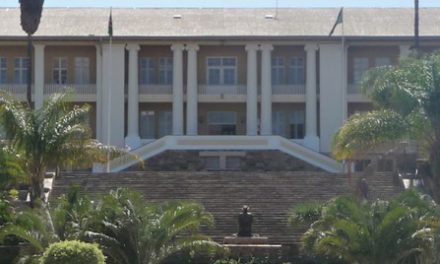
NBC boss silences doubting Thomases
Less than two years after being appointed to the helm of the troubled public broadcaster, Albertus Aochamub seems to be defying odds heavily stacked against him as he slowly steers the NBC ship out of its perennially financial quagmire.
According to the 2011/12 unaudited financial results released this week, NBC’s own revenue went up by 9% to N$63.4 million driven by transmitter rental income which went up 90% to N$4 million, TV licence revenue which increased 17% to 16.2 million, and advertising revenue that saw a marginal increase of 4% to end the year at N$41.5 million.
At N$211 million, total expenditure for the year increased at a relatively slow pace (3%) compared to previous years despite a 5% increase in direct operational expenditure, employment related costs and a14% increase in repairs and maintenance costs. Aochamub said this was achieved by mainly savings in overtime payments.
But despite the relative success in reducing overtime expenses, employment costs still gobbled the majority of total expenditure. At N$142 million, employment costs still take up 68% of total expenditure a worrisome trend for the NBC director general who vowed to reduce the costs of employment “by all means necessary.”
During the year under review, key milestones achieved include the submission of annual financial statements to the Auditor General for the financial years 2009, 2010 and 2011; the completion of an asset verification exercise and compilation of a fixed asset register. The corporation is now performing regular financial reporting to management and board, including weekly cashflow forecasting, quarterly and monthly management reporting.
NBC has also managed to obtain clarity regarding its historical debts from the Ministry of Finance. The public broadcaster still owes the Receiver N$220 million in PAYE, N$50 million as VAT payments and N$5 million to its own pension fund down from N$7 million.
Aochamub told the media that NBC, which is battling to have its staggering debt to the Receiver written off suffered a huge setback when it was told by the Finance Minister that it was not legally permissible to have the principal debt written off. He was, however, grateful that the minister had agreed to write off the interest.










































